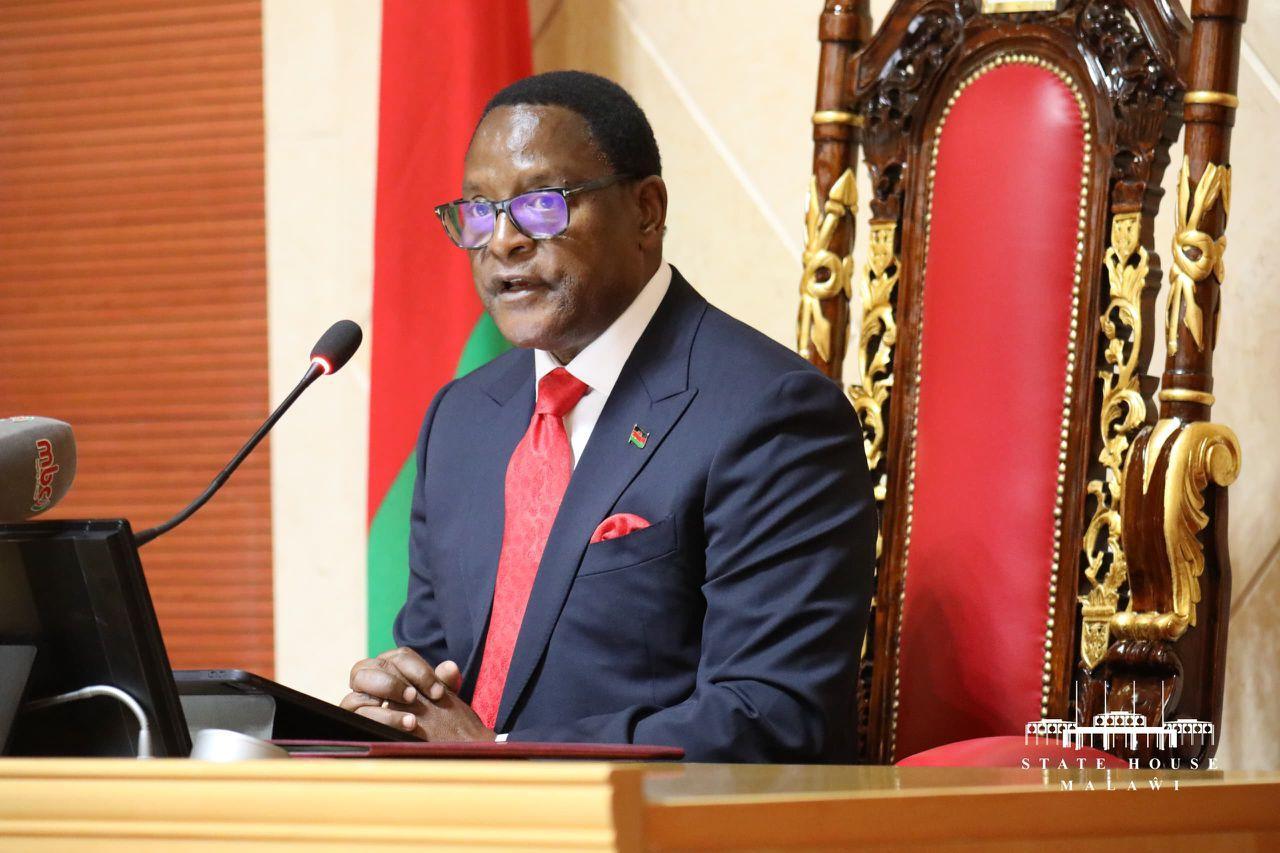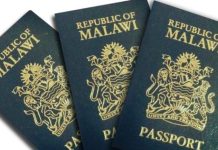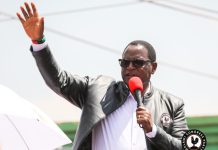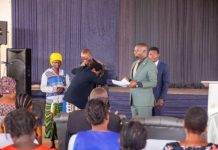
By Alfred Chguwa
Africa-Press – Malawi. As the sun sets on President Lazarus Chakwera’s first five-year term, the leader took to Parliament on February 14, 2024, to deliver his final State of the Nation Address (SONA) before the next general elections.
In an impassioned speech titled “Taking Our Development Forward to Continue the Progress We Have Delivered”, Chakwera meticulously detailed his administration’s achievements across Malawi’s districts, making a case for continuity amid economic turbulence and political uncertainty.
A Presidency Defined by Systemic Surgery
Chakwera framed his tenure as one of painful but necessary reforms, likening his governance to a “systemic surgery” that sought to correct years of mismanagement. He acknowledged the economic hardships Malawians endured—rising costs, currency devaluation, and food insecurity—but assured the nation that the sacrifice was yielding tangible development gains.
His report was a district-by-district breakdown of projects, spanning food security, economic growth, governance, human capital, and infrastructure. From Chitipa in the north to Nsanje in the south, he painted a picture of progress, though critics argue that the reality on the ground tells a more complex story.
Northern Region: Infrastructure and Agriculture Take Center Stage
In Chitipa, the government funneled K6.1 billion into irrigation schemes and provided fertilizer subsidies to over 13,000 farmers through the Affordable Inputs Programme (AIP). A further K949 million was disbursed in fertilizer loans, while maize distribution efforts targeted 5,791 food-insecure households. Electrification efforts saw 2,054 houses connected through MAREP and MEAP, and a communication tower was erected at Mughese to improve connectivity.
Neighboring Karonga, a key agricultural hub, faced devastating dry spells that wiped out thousands of hectares of crops. In response, Chakwera’s administration rehabilitated four irrigation schemes and invested in a rice-milling plant at Nthola-Ilola. Despite steady reductions in AIP beneficiaries, the government provided K298 million in fertilizer loans and distributed K1.5 billion worth of food aid. Infrastructure projects included the near-completion of the Karonga Town Water Supply Project, which will benefit 184,000 people.
In Mzimba, Malawi’s largest district, the administration touted irrigation investments, including the Kasangazi scheme covering 100 hectares. Over K18 billion in NEEF loans went to entrepreneurs, and electrification efforts connected over 9,000 homes. However, one of the biggest promises—the construction of Inkosi Ya Makhosi M’mbelwa University—faced delays, though Chakwera assured the public that work was now on track.
Central Region: Urban Expansion and Connectivity
In the capital Lilongwe, Chakwera’s administration championed road expansions and water infrastructure, though these were not as prominently featured in his speech. Instead, he emphasized the broader regional electrification efforts and investments in agricultural productivity.
Dowa, Kasungu, and Ntchisi saw developments in education, including new secondary schools, while the expansion of irrigation projects aimed to bolster food security. Connectivity improvements were highlighted, with the expansion of roads and digital communication projects under the Last Mile Connectivity initiative.
Southern Region: Recovery and Resilience in the Face of Disasters
The south bore the brunt of natural disasters, particularly Cyclone Freddy, which devastated Nsanje, Chikwawa, Mulanje, and Phalombe. In response, the government channeled billions of Kwacha into relief efforts, cash transfers, and infrastructure rehabilitation.
In Nsanje, maize relief distribution reached over 36,000 households, while cash transfers targeted over 50,000 cyclone-affected families. Infrastructure projects included the full completion of the 31km Nsanje-Marka Road, which had stalled under previous administrations, and the revival of the long-dormant railway system linking Malawi to Mozambique.
In Chikwawa, the Shire Valley Transformation Programme—one of Malawi’s most ambitious irrigation projects—was reported to be 70% complete. Electrification efforts saw over 10,000 homes connected, and road networks, including the Thabwa-Bangula and Sidik Mia highways, were in feasibility study stages.
For Thyolo and Mulanje, areas often associated with opposition strongholds, Chakwera outlined efforts in agricultural support, including K519 million invested in AGCOM farming equipment. Security housing was constructed, and new schools and health centers opened, though critics argue that more needs to be done to improve rural livelihoods.
Likoma: A Future Economic Hub?
One of the most ambitious visions laid out in the speech concerned Likoma Island, where Chakwera announced plans to transform it into a financial hub. He proposed turning the island into a “tax-exempt paradise” with resorts, banks, and a crypto-backed economy. While innovative, the feasibility of such a plan remains uncertain.
The Political Message: Forward or Backward?
Throughout the speech, Chakwera positioned himself as a leader committed to long-term national development. His refrain—warning Malawians against “those who offer to take them backwards”—was a direct challenge to opposition parties, particularly the Democratic Progressive Party (DPP), which has heavily criticized his administration for economic mismanagement.
While his supporters praise the detailed breakdown of district-level developments, critics argue that some projects remain unfinished, underfunded, or exaggerated. Questions also linger over the economy, unemployment, and the effectiveness of governance reforms.
Looking Ahead: Will Malawians Buy into the Vision?
With elections looming, Chakwera’s detailed SONA serves as both a progress report and a campaign pitch. Whether Malawians believe in his vision for continuity or opt for change will be determined at the ballot box. But one thing is clear—his administration has left a footprint across the nation, for better or worse.
For More News And Analysis About Malawi Follow Africa-Press





